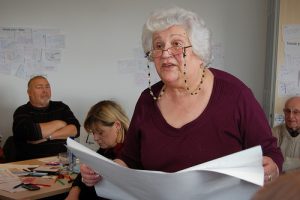ALISS | Providing better information for people living with long-term conditions

In collaboration with Futuregov, we worked with an exciting group of people from NHS Scotland. Headed up by Christine Hoy from Scottish Government's Self Care unit, we developed an open innovation process to develop new ways to access local information and support services.
In collaboration with Futuregov, we worked with an exciting group of people from NHS Scotland. Headed up by Christine Hoy from Scottish Government’s Self Care unit, we developed an open innovation process to develop new ways to access local information and support services.
We adopted a co-creative process to develop new solutions that would help users access useful and helpful information to improve their quality of life. Snook spent time contextually interviewing staff and service users to build a bank of insights on what the issues were around living with long-term conditions (LTCs). Using journey maps, we built complex but empathic stories of people’s lives from diagnosis which allowed us to synthesise key moments in people’s lives where services and information weren’t joined up.
These principles were enhanced by the development and completion of cultural probes in the second phase which we sent to service users to understand what their lives looked like and what issues they had during their days in relation to support and information. This allowed us to gain a much deeper understanding of how people lived with LTCs and produce well-crafted insights.
In the third phase of the project, we ran three co-design workshops and finished with an Innovation Camp to bring together NHS staff, third sector organisations and service users to develop solutions to some of the issues we had found. We developed tools that aided the creative process and took users from problem to solutions. The innovation camp developed six new solutions which had been created by people living with LTCs, NHS staff and representatives from Scottish Government.
Two of the six services designed have been of particular interest to the ALISS team. One is a service called, ‘First thing’s first’; a connecting tool for people who have just been diagnosed with a long-term condition. The other service is a peer-to-peer bookmarking site called ‘INCA’ that allows users to promote trustworthy sites and flag unhelpful information which may be untrue or insensitive.
The process of open innovation allowed the time to really think about the issues people living with LTCs have everyday and throughout their lives. By co-designing solutions, we produced ideas that could be implemented by service providers easily and would truly meet the needs of users.
This project echoes our belief that, by empowering people to make informed decisions about how to manage their life with the necessary support, it can have very real and positive outcomes for all involved.